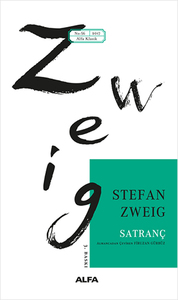You need to sign in or sign up before continuing.
Take a photo of a barcode or cover
informative
inspiring
sad
tense
slow-paced
Plot or Character Driven:
Character
challenging
dark
mysterious
reflective
sad
tense
medium-paced
Plot or Character Driven:
Character
Strong character development:
Yes
Loveable characters:
Complicated
Diverse cast of characters:
No
Flaws of characters a main focus:
Complicated
fast-paced
reflective
tense
fast-paced
Plot or Character Driven:
Character
Strong character development:
No
Loveable characters:
Complicated
Diverse cast of characters:
No
Flaws of characters a main focus:
Yes
dark
tense
fast-paced
challenging
dark
mysterious
reflective
tense
slow-paced
Plot or Character Driven:
Character
Strong character development:
Complicated
Loveable characters:
Yes
Diverse cast of characters:
No
Flaws of characters a main focus:
Yes
reflective
tense
fast-paced
Plot or Character Driven:
Character
Strong character development:
Yes
Loveable characters:
Complicated
Diverse cast of characters:
No
Flaws of characters a main focus:
Yes
Man tat uns nichts an – man stellte uns nur in das vollkommende Nichts [...].
Ich habe die Novelle zum ersten Mal in der 9. Klasse gelesen und sie ist immer noch genauso fesselnd, faszinierend und beunruhigend. Eine Geschichte von Isolation, Manie und vielleicht auch Überlegenheitsgefühlen. Mirko Czentovic bleibt eine undurchdringliche Person, der man mehr Intellekt zusprechen möchte, als er besitzt – seine Eitelkeit schlägt schließlich ins Boshafte um und spätestens, wenn
Schachvergiftung ist übrigens mein neues Lieblingswort. Passt gut auf euch auf, ihr Schachspieler:innen da draußen!
dark
reflective
tense
fast-paced
Plot or Character Driven:
A mix
Strong character development:
No
Loveable characters:
Complicated
Diverse cast of characters:
No
Flaws of characters a main focus:
Complicated
when I read A Chess Story for the first time at 14, I don't think I was mature enough to fully appreciate Zweig, even though I was struck by his style. I think he perfectly fits the first paragraph of Montaigne (1942), in his very own words :
"There is a select group of writers who are accessible to - anyone, at whatever age or stage of life-Homer, Shakespeare, Goethe, Balzac, Tolstoy-and then there are those whose significance is not properly revealed until a particular moment. [Zweig] is one of these."
I'm so glad a friend re-introduced me to his works by lending me Beware of Pity, I feel like this is the perfect time for me to dive into it.
"There is a select group of writers who are accessible to - anyone, at whatever age or stage of life-Homer, Shakespeare, Goethe, Balzac, Tolstoy-and then there are those whose significance is not properly revealed until a particular moment. [Zweig] is one of these."
I'm so glad a friend re-introduced me to his works by lending me Beware of Pity, I feel like this is the perfect time for me to dive into it.








